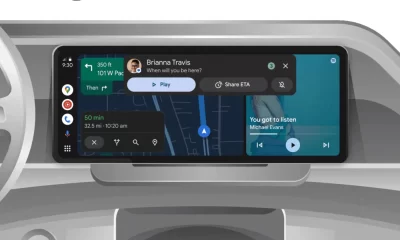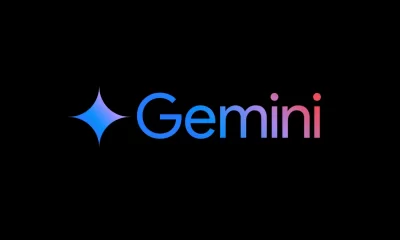Chrome’s new tab search and Google Photos’ AI memory boost with Gemini
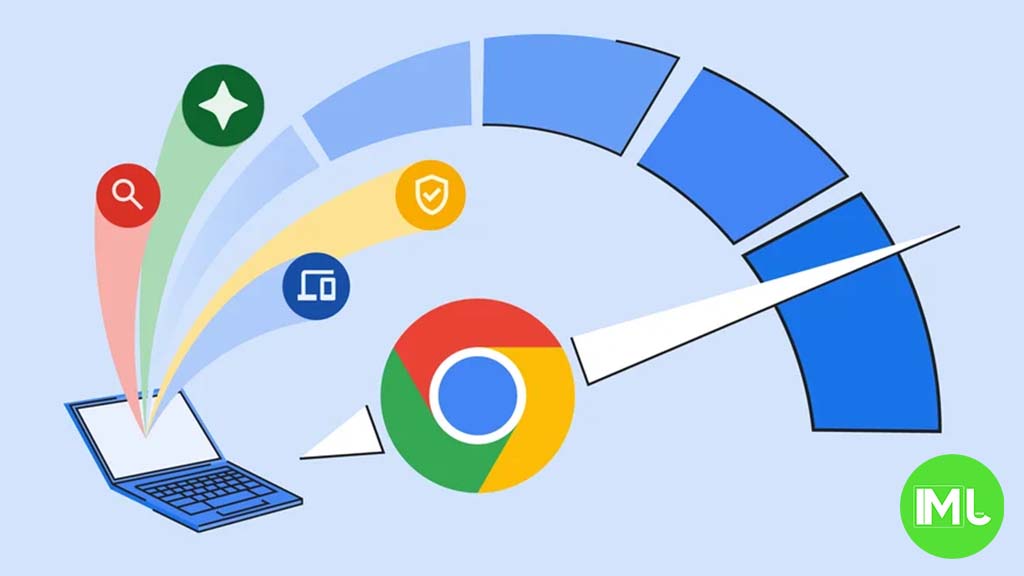
Top 3 Key Points:
- Chrome for Android’s new tab search feature is in development for easier navigation.
- Google Photos may use Gemini AI to enhance memory recaps with narrative elements.
- Both features are still in the testing phases, not been fully released yet.
Google Chrome, known for being a top-notch web browser on both desktop and mobile, is continuously improving its features. Recently, new updates have been spotted in Chrome Canary, an experimental version of Chrome. One of the standout features in development is a search bar within the tab switcher, specifically for the Android version. Meanwhile, Google Photos might soon introduce AI-powered memory recaps using its advanced Gemini AI.
Chrome for Android: Search Through Open Tabs
Chrome Canary often reveals upcoming features before they hit the stable version. A recent addition allows users to search through their open tabs directly from the tab switcher. If you’re the type of user who keeps multiple tabs open, finding a specific one can be tricky. This new feature will make it easier to locate exactly what you need.
According to reports from Leopeva64 on X (formerly Twitter), the new search bar appears right in the tab switcher. When you enter a search term, it will highlight matching results from your open tabs. This could be particularly useful for those using devices with smaller screens, where managing multiple tabs can be more challenging. Although this feature is still in the experimental stage, it’s available to try in the Canary version of Chrome, which can be downloaded from the Google Play Store. However, be aware that Canary isn’t as stable as the public version of Chrome, so you may encounter some bugs.
The new search box in the tab switcher now works in Chrome Canary for Android, the right-facing arrows inside the rectangle indicate that those are your open tabs:https://t.co/2GFOG5iSR9 pic.twitter.com/54bdXu7FEZ
— Leopeva64 (@Leopeva64) September 24, 2024
Google Photos and Gemini AI: A New Way to Relive Memories
Google Photos is widely popular for storing and managing photos and videos. One feature many users enjoy is its “Memories” feature, which shows highlights from past years. Now, it seems that Google is looking to enhance this experience using AI, specifically its Gemini AI.
In the latest Google Photos v7.1, there are signs that Gemini will soon be involved in creating more personalized memory recaps. Currently, memory recaps are simple slideshows of photos and videos with music, but without narration. The addition of AI-powered narration could provide more context to these moments, making them feel even more special. For example, instead of just showing photos from a vacation, Gemini might narrate the event, providing a story-like experience.
Google may limit this feature to certain memory types, like a “Year in Review” recap. Whether Gemini AI will pull additional data from other Google services is still unclear. However, the feature appears to be opt-in, meaning users can choose whether to use it or not. The strings in the latest Google Photos update suggest that this feature might be available by December.
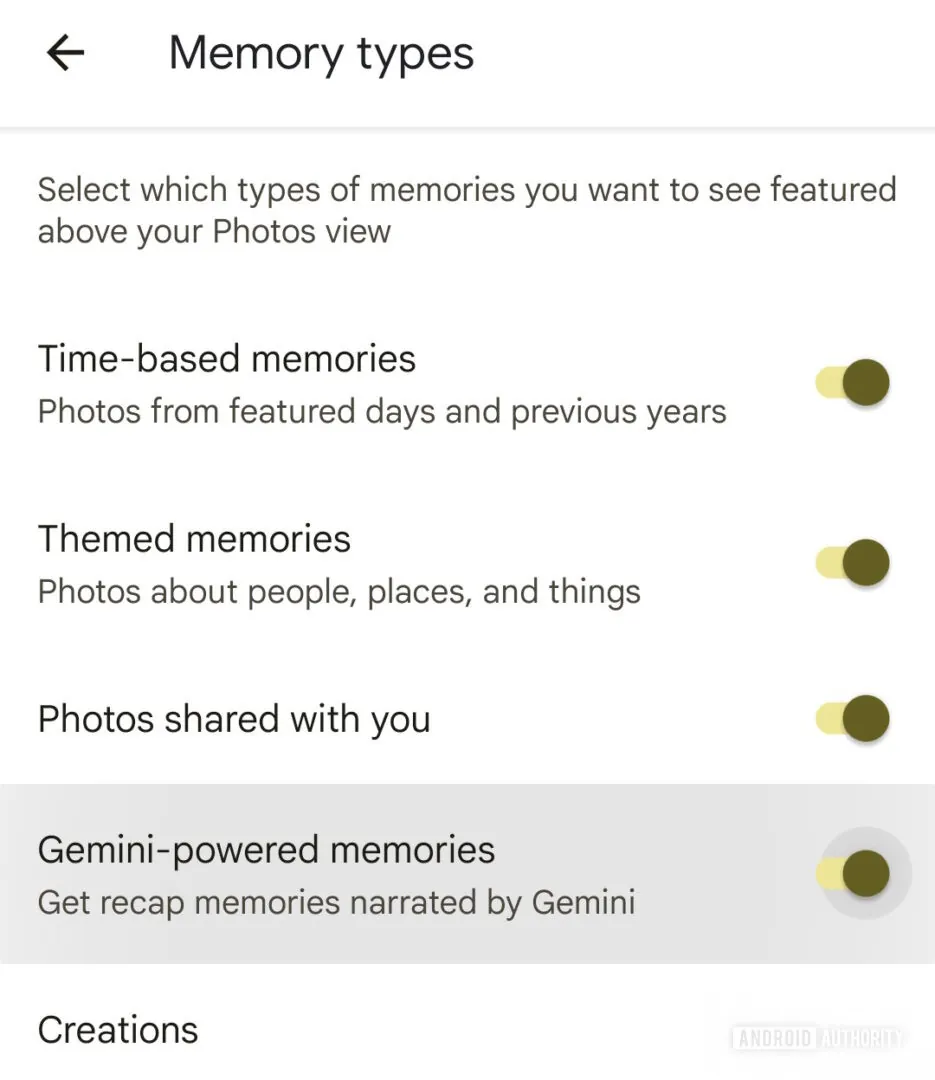
Conclusion
Both Chrome’s new tab search feature and Google Photos’ AI-powered memory recaps are still in testing phases, but they promise to make user experiences more efficient and personalized. Whether it’s finding tabs more easily in Chrome or reliving your favorite memories in a more immersive way through Google Photos, these updates are something to look forward to. As always, being part of experimental updates like Chrome Canary lets you explore these changes before they’re widely available, but with the understanding that some features might still be unstable.
Google Meet gets a fresh new look with Material 3 design
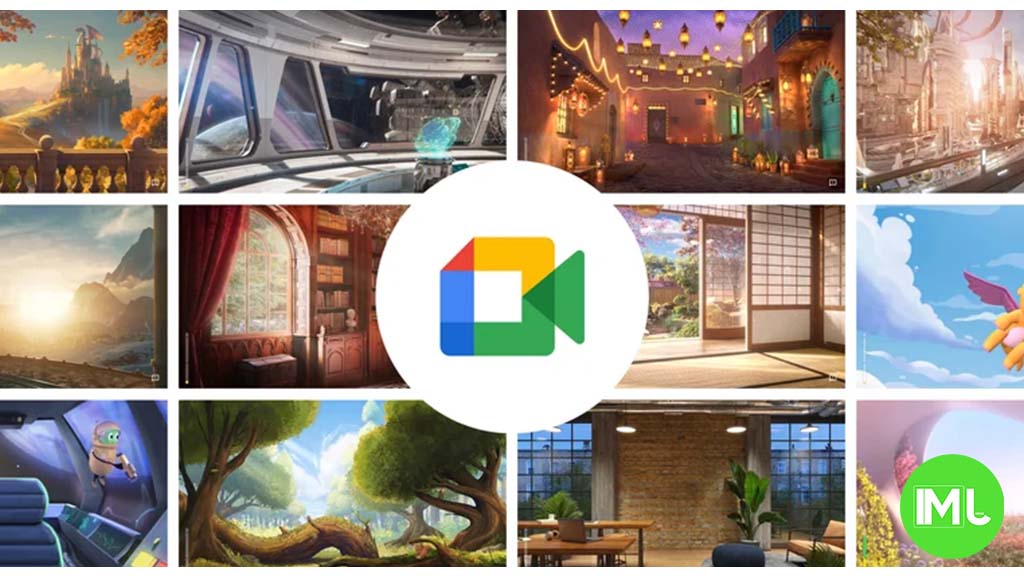
Google Meet is getting a big update to its look, thanks to the new Material 3 design. This change brings a cleaner and more modern style to the video calling app, making it easier and more enjoyable to use.
With Material 3, Google Meet now has rounder buttons, softer colors, and better spacing between elements. The main controls, like the microphone, camera, and end call buttons, are now larger and easier to tap. The icons and text are also clearer, which helps users find what they need quickly during a call.
Another improvement is the new “expressive” color system. This feature lets the app’s colors match your device’s wallpaper or theme, giving each user a unique and personalized experience. The changes also make Google Meet more accessible, as the new design is easier to read and use for everyone, including people with vision difficulties.
These updates are rolling out to both web and mobile versions of Google Meet. Google says the new look will help people feel more comfortable and focused during their meetings. Overall, the Material 3 update makes Google Meet not only look better but also work better for all its users.
Android
Easy ways to change Android Auto’s look with light and dark themes
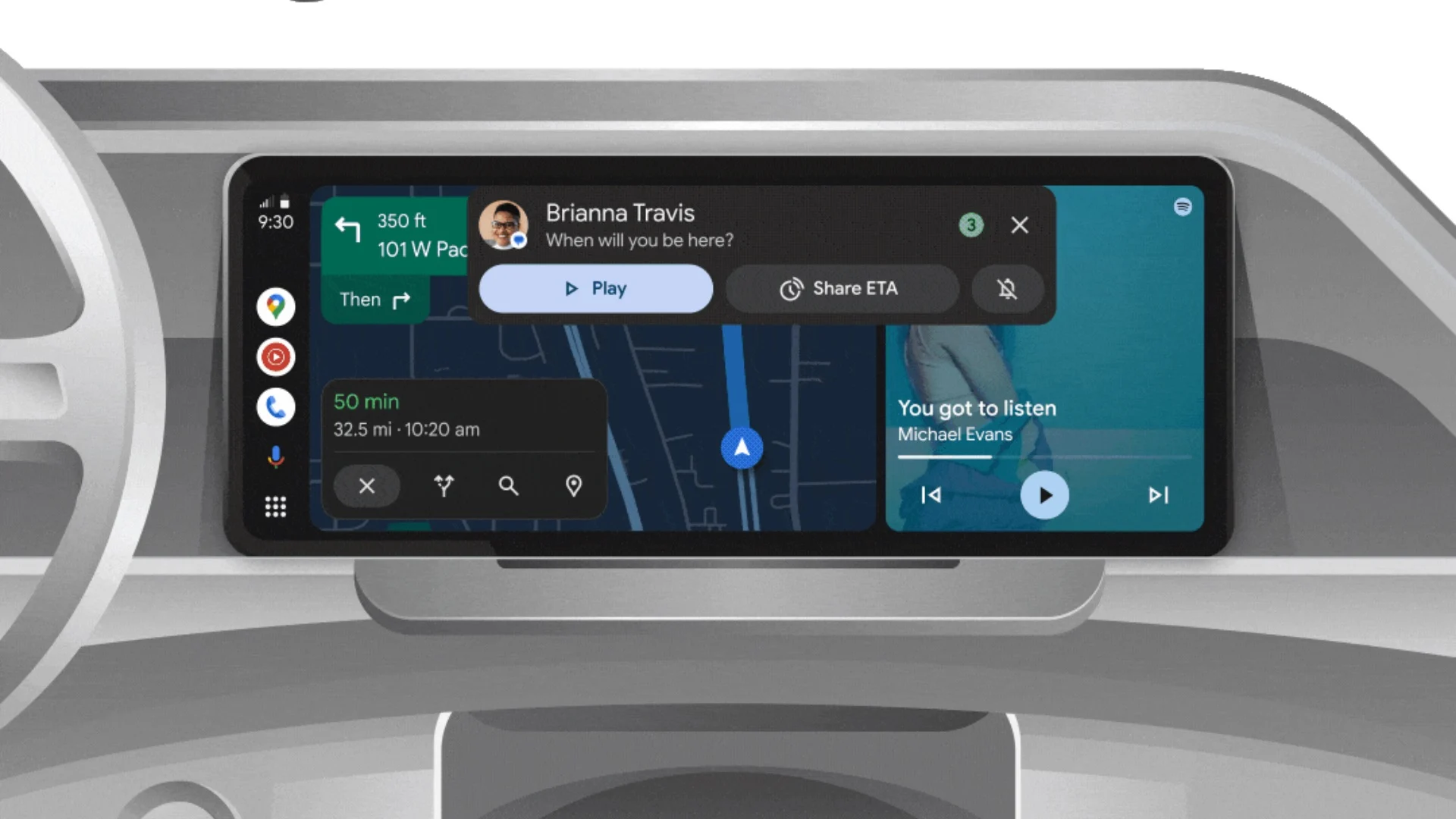
Android Auto is a helpful tool that lets you use your phone’s apps safely while driving. It connects your phone to your car’s screen, making it easier to use maps, music, and calls. One of the features many people like is the ability to change how Android Auto looks by switching between light and dark themes.
How to switch between light and dark themes
Android Auto offers two main themes: light and dark. The light theme uses brighter colors, which can make the screen easier to see during the day. The dark theme uses darker colors, which can be more comfortable for your eyes at night or in low light.
To change the theme, follow these steps:
- Open the Android Auto app on your phone.
- Go to the settings menu.
- Find the “Theme” option.
- Choose between “Light,” “Dark,” or “Set by car” (this lets your car decide the theme based on the time of day or your car’s settings).
Why themes matter
Using the right theme can make driving safer and more comfortable. The light theme is good for bright days, while the dark theme helps reduce glare at night. Having these options means you can pick what works best for you, making Android Auto easier to use in any condition.
In short, Android Auto’s theme options are simple to use and help you drive more safely by making the screen easy to see, no matter the time of day.
Google Drive and Files by Google get fresh updates for easier use

Google is rolling out some helpful updates to two of its popular apps: Google Drive and Files by Google. These changes are designed to make managing your files and watching videos much smoother.
First, Google Drive is getting a new video player. Now, when you upload a video to Drive and open it, you’ll notice a fresh look that matches Google’s latest design style. The controls, like play and pause, are easier to use and look cleaner. This update makes it simpler to watch videos directly in Drive without needing to download them first.
Meanwhile, the Files by Google app is also getting a makeover. The app is adopting Google’s Material 3 design, which means it looks brighter and more modern. The buttons and menus are easier to see and use, making it simpler to find, move, and organize your files. There are also new color options and improved icons, so everything feels more user-friendly.
Both updates show Google’s commitment to making its apps more helpful and enjoyable to use. Whether you’re watching videos in Drive or sorting files on your phone, these changes aim to save you time and make things less complicated. If you use these apps, keep an eye out for these new features—they should arrive soon!
-
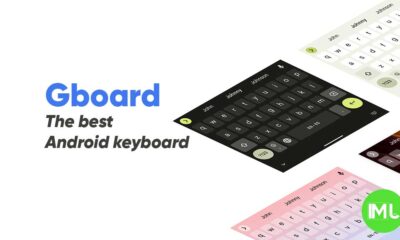
 Apps1 year ago
Apps1 year agoGboard Proofread feature will support selected text
-

 News1 year ago
News1 year agoSamsung USA crafting One UI 6.1.1
-

 Apps1 year ago
Apps1 year agoGoogle Contacts app testing new Besties Widget
-
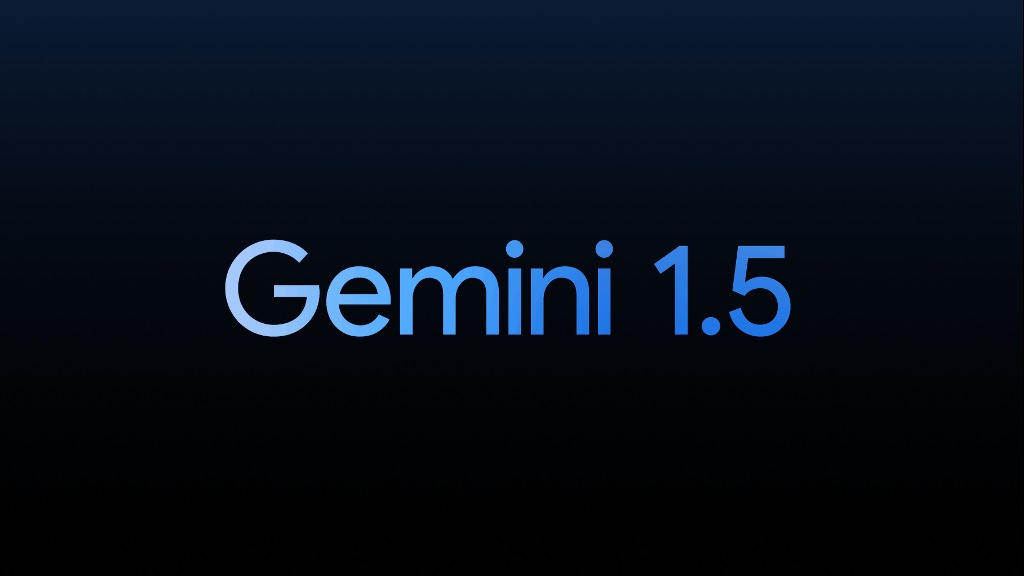
 AI12 months ago
AI12 months agoGoogle Pixel 9 Pro may come with a complimentary one-year Gemini Advanced subscription
-
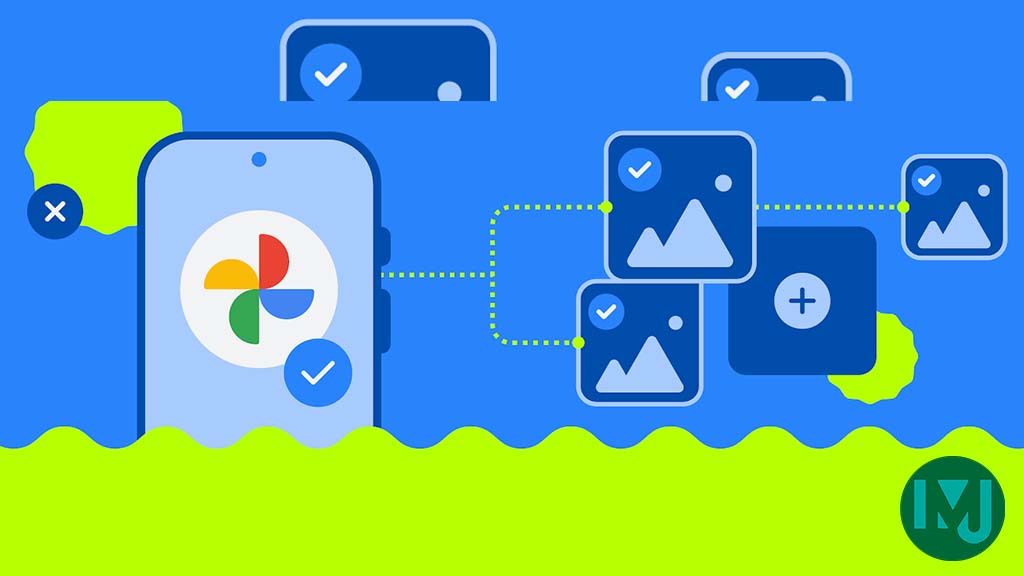
 Apps12 months ago
Apps12 months agoGoogle working on a new video editing feature for its Photo app
-
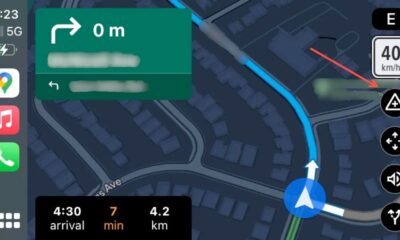
 Apps12 months ago
Apps12 months agoGoogle Maps lets you report traffic jams and accidents on Apple CarPlay, but not on Android Auto
-

 News1 year ago
News1 year agoBreaking: Samsung Galaxy S22 may get Galaxy AI features
-

 Apps1 year ago
Apps1 year agoGoogle Messages app will transform MMS chats into RCS



